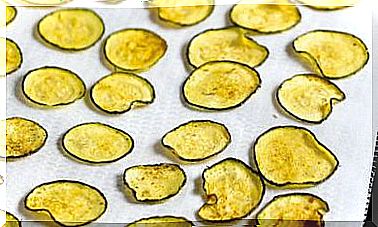Living Without Prejudice: How To Achieve It?
If we always do (and think) the same, without opening ourselves to new interpretations of life, the result we obtain will never be different

In a world that evolves as fast as the one we live in, not being able to question what we know, not encouraging ourselves to review what we were once told or not allowing ourselves to update our own experience would leave us in a short time in the same situation as who he never knew and understands nothing.
The modern history of science shows unequivocally how the sum total of human knowledge is doubling more and more rapidly. This acceleration of the knowledge of humanity is undoubtedly sustained and driven by the speed of the technological advances of the last century, especially by communications.
The expansion of the Internet, for example, is considered to be largely responsible for the acceleration of this rate of global duplication of knowledge; because of “his fault” humanity as a whole will have access to twice the total information that it now has in just five years.
Without prejudice and willing to rethink everything
No one can doubt the beneficial advances and good results that Western society has obtained in the last twenty years, thanks to the progress, discoveries and developments that have taken place in medicine, biology or agronomy, but this accelerated evolution also motivates, for better and for worse, the rapid and brutal expiration of our knowledge.
It is essential, then, knowing this, to be attentive to update what we know permanently; review, discard, discover, complete, improve and question what we always had for certain.
It is necessary to create new designs of old products, new solutions to old problems and new ways of using the old tools that we have inherited in the new challenges that the present offers us. If these reasons were not enough to justify the need to open ourselves to the new or the convenience of exploring new possibilities, I have an additional argument that I believe irrefutable.
Open our mind
As a therapist, I learned a rule that has served me a lot in my life and that I repeat to other people when I have the opportunity. Everything revolves around the definition, particular and provocative, that one of my teachers gave when he tried to clarify for us, future therapists, the concepts of neurosis and mental health.
The biggest nonsense is not living doing strange things that most people associate with insanity, but
“Living always doing the same thing and having the absurd claim that the result we obtain is different”
What leads us to have this illogical expectation, which will predictably lead us to repeated frustration of what we expect? Surely, one of the reasons for this stubbornness stems from our obvious difficulty in opening ourselves to new possibilities, that is, from our rigidity, which prevents us from accepting changes, from our prejudices and the force of repeated bad habits, which have become custom only because they were once useful or because they were taught that way.
In some areas of knowledge, everything happens as if we were fleeing from creative thinking, frightened by the consequences of reflecting, facing or contrasting the facts, which is supposed to be true until today. We maintain attitudes based on prejudices that we are not capable of sustaining in our daily discourse anyway. It seems clear that if a survey were done with the questions I state below, we would get very little or no affirmative answer:
- Are you in favor of rigidity of thought?
- Does it seem positive or productive to you to evaluate a situation or a person based on your unfounded prejudices?
- Do you think that generalizing about something or someone is a way to help find the definitive truth of things?
- Do you think it is beneficial to cling to anachronistic mental habits?
And yet, in the daily sequence of our behavior, being honest with ourselves, we cannot help admitting that, on more than one occasion, we do not dare to open our minds to some new ideas and that we find ourselves doing some colored analysis of prejudices or based on old reference schemes that no longer have any value.
We must accept that some statements could be classified as mere generalizations, as facts from our own limited experience or as the product of a restricted look at a certain environment.
A story on a platform
Many, many years ago, a poem came into my hands. It was called The Cookie Thief and had been written by a wonderful American author, Valerie Cox. The poem was as beautiful as the story it told. Unable to translate the poetics of the work, I settled for making a story out of the story, which has been with me ever since.
In recent years, I have come across the story twice, told in the form of advertisements for two cookie manufacturers: once in Italy and once in Brazil. It is clear that someone else enjoyed Valerie Cox’s poem and decided to capture it in images; Or maybe – I am excited to think that this may have been the case – someone enjoyed my own version of the story and transformed it into one of those commercials.
The story tells of a woman who arrives at the railway station to get on the train that will leave her after a two-hour journey in her hometown. When asking for the departure platform, the station employee warns her that, unfortunately, the convoy is late and will arrive at the station an hour later than expected.
Annoyed, like anyone who has to endure an unexpected sit-in, the woman goes to a small establishment in the station and buys there a couple of magazines, a packet of cookies and a soda.
Minutes later, he settles down on one of the platform benches to wait for the convoy. She puts her things aside and starts flipping through one of the magazines. About ten minutes pass. Out of the corner of his eye, he sees a bearded young man approaching who takes a seat on the same bench.
Almost instinctively, the woman turns away from the boy, sitting on the end of the seat and reading on. Again from the corner of her eye, the woman watches with amazement how, without saying a word, the young man reaches out, takes the package of cookies that is between them, on the bench, opens it and takes a cookie.
What shamelessness! She thinks. Without even asking for permission …
Willing to assert her thoughts in the face of the situation, but not to speak to the cheeky young man, the woman turns and, pompously, also takes a cookie from the package and, staring at the boy, takes it to her mouth and tells him. take a bite.
The young man, in response, smiles and … takes another cookie.
The woman is outraged … She can’t believe it. He looks back at the boy and grabs a second cookie. This time he makes an exaggerated gesture, turns the little cake in front of the young man’s face and then, without taking his eyes off him, angrily chews the cookie.
So this strange silent dialogue between the woman and the boy continues.
Cookie her, cookie him. First one, then the other …
The lady, increasingly indignant; the boy, more and more smiling.
At a certain point, the lady realizes that there is only one cookie left in the package. The last. “He won’t dare … He’s not going to eat the last one …!”, He thinks. As if he had read the indignant woman’s thoughts, the young man reaches out his hand again and, very gently, takes the last cookie out of the package.
Now it is the boy who looks the lady in the eye, and, cutting the cookie in two, offers her one of the halves with his most charming smile.
“Thank you,” she says, accepting, with a voice and face of few friends.
At that moment, the train that the woman was waiting for arrives at the station. The lady stands up, collects her things from the bank and, without saying a word, gets into the car that belongs to her. Through the window, the angry passenger watches the young man eat half of the last cookie in small bites.
“With a youth like this,” he says to himself, “this country has no remedy.”
The train starts. Her throat parched with anger, the woman opens her purse to look for the soda she had bought at the station store. To your surprise, there it is, intact and unopened … your very own package of cookies!
This wonderful story, which can be told to speak of many things, shows the results of the preconceptions,
The unfairness of some of the analyzes we make and the conclusions we reach, when we let our gaze become stained with the immoral partiality that prejudice brings.









